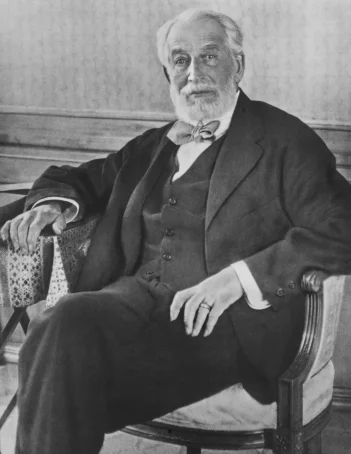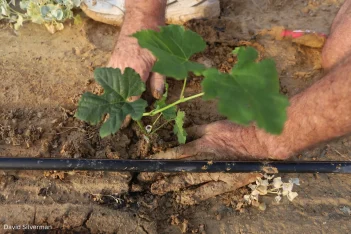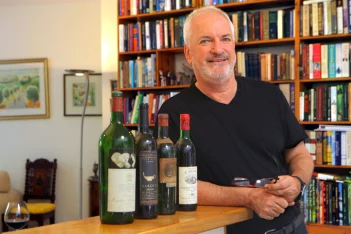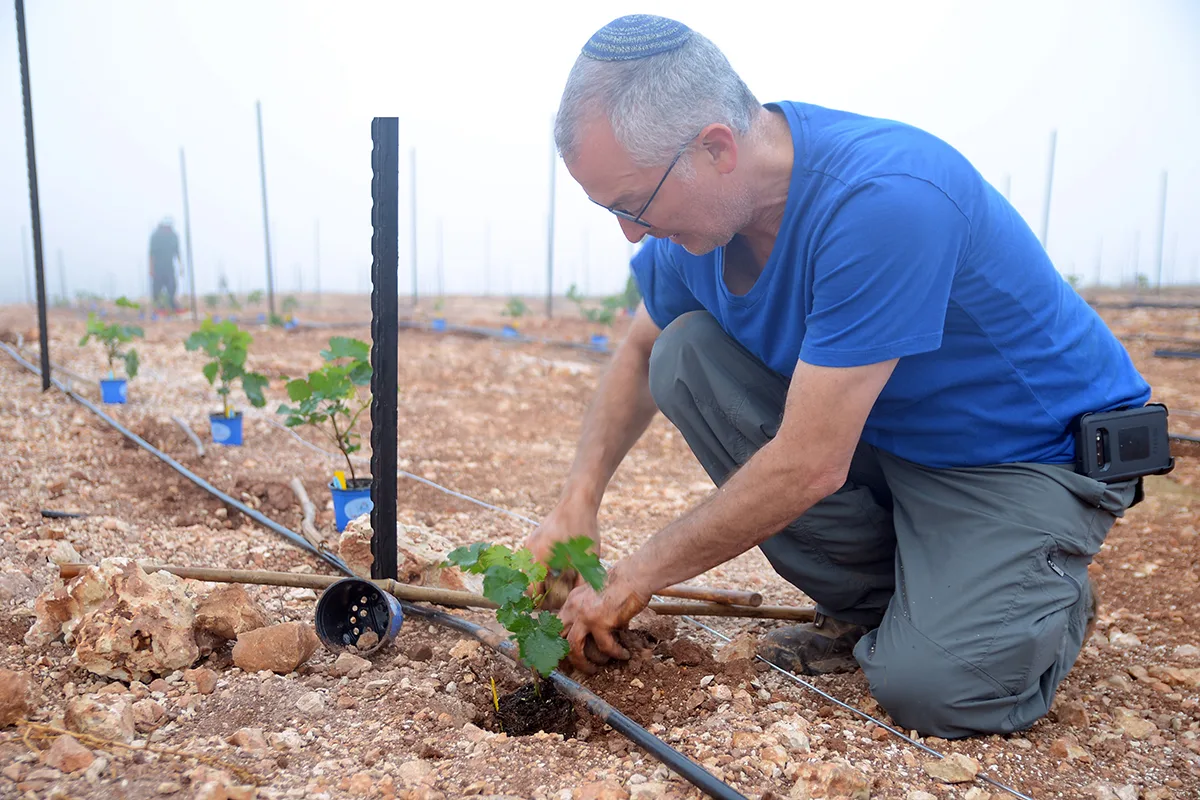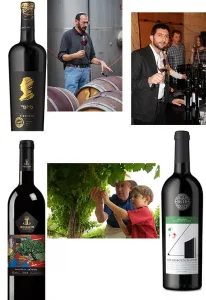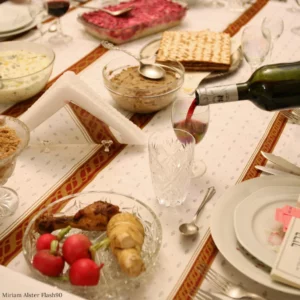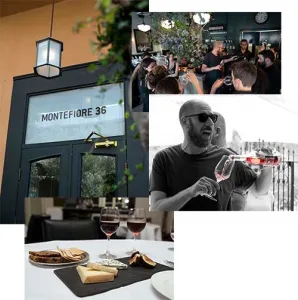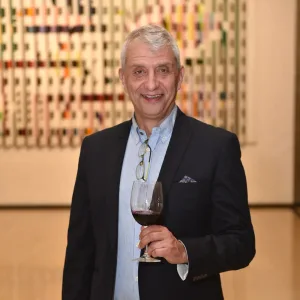Imagine winemaking at Ancient Shiloh 3,000 years ago. This was where the Tabernacle and Ark of the Covenant resided before Jerusalem came on the scene. Grapes were one of the seven blessed species. Wine was an essential ingredient of the sacrifice ritual on the Altar. It was a mainstay of the economy and a major export to places like Egypt. The vineyards were situated on the hills, overlooked by a watch tower/
At Tu B?Av, Judaism?s very own Valentine?s Day, the harvest would begin. Eligible young girls would dress in white and dance in the vineyards, hoping to find a suitable match. During the harvest, which would continue until Yom Kippur, families would live in temporary, small booths, set up by the vineyard. The grapes were picked, taken to the wine press, called ?the gat?, which was always nearby the vineyard. Then with much singing, the grapes would be stomped on, in the flat limestone basin, and the juice would run into the deeper pit, known as ?the yekev?. The fermentation would run its course totally naturally. Sukkot was the harvest festival, in which the end of the grape harvest was celebrated. The wine produced was in those days most probably red, sweet and it would have been flavored by herbs, spices, and honey, or maybe even sea water. After fermentation, it would be poured into a pottery wine jar, known as a ?Canaan Amphora?, and placed in a dark, cool cave for storage and maturation.
Today, the art of making wine has returned to these same hills. Shiloh Winery is making wine in modern Shiloh in the heart of the Central Mountains, not far from Ancient Shiloh, where the Jewish story took shape. I first came across their wines at a wine auction, held by Haim Gan of Ish Anavim, in 2007. The wines were on display at the back of the room. What struck me were two things. Firstly I had not heard of them, which annoyed me. In those days I thought I knew all the Israeli wineries. Then, that was still possible. These days, there is no chance. Secondly, I immediately liked their labels. The metallic red capsule and Secret Reserve label were immediately striking, stylish and attractive.
Our next meeting of consequence, was at the Eshkol Hazahav 2011, Israel?s premier competition. I was astonished along with everyone else, when Shiloh Winery stole the show by winning first place in the three major red wine categories. In the following years, they became one of the leading gold medal winners of the smaller wineries.
A few years ago I visited the winery, with the ?Golan Veterans?. There is a group of us, who used to work for the Golan Heights Winery in the nineties. Every few months, we meet to tour and taste at different wineries. To be honest, I was disappointed. It was not one of those visits that add to your appreciation of the wine. It was crowded, disjointed, a bit of a mess and seemed a difficult place to work. However, the winemaker, Amichai Lourie, exhibited confidence and was not a shrinking violet. He explained the investment was in the equipment, not in the visuals or how things look. As it was a group visit, I did not really have the opportunity to dig and delve.
Fast forward to this last year and the world?s premier wine competition, the Decanter World Wine Awards. The performance of Shiloh Winery was unprecedented. Their Secret Reserve Cabernet Sauvignon and Mosaic Exclusive Edition both scored 95 points and won Gold Medals. Furthermore, seven other of their wines received Silver Medals and scored 90 points or more. It was a bold and impressive display of quality all round and a great show of strength in depth. Now I am as cynical as the next guy regarding competitions. As a winery veteran I used to say: don?t get too excited when you do well, or too despondent when you do badly. Keep everything in perspective. On the other hand repeated third part recognition does make one sit up and take notice.
Another thing I could not help noticing, was the ongoing success of the winery in export markets. No less than sixty percent of their sales are in export, which is way above the average. The proof of the pudding was in the eating. You can?t argue with success. So I felt I had to meet Amichai Lourie, the winemaker, for a more in depth meeting, to learn more. We arranged to meet on zoom. I asked him to spare me two hours to be sure, thinking one would surely be adequate. In the end we talked for three hours. He was talking non-stop, whilst I was frantically scribbling. It was absorbing.
Amichai Lourie was born in the USA, came to Israel aged four, was brought up in Jerusalem and now lives in Ma?ale Levona with his wife, Yael. He has four children and he is the proud grandfather of eight grandchildren. His father was a Chazzan and a professional chef. A great combination: feeding stomach and soul. Amichai had early memories of drinking wine with his mother, who was a wonderful domestic cook. The deep roots of Amichai?s love of Judaism, food and wine had to come from somewhere.
Amichai has the look of an accountant with close cropped grey hair and round rimmed glasses. He is a marvelous communicator with a measured delivery, ability to hold an audience and the timing of a professional. He is a foodie, not any old foodie, but a Carnivore, with a giant C. I have never seen anyone pictured so many times alongside slabs of meat and Chicago sized juicy steaks in social media and video films. He is a do it yourself merchant. How many people do you know, that slaughter their own lamb or cow, butcher it, aging the meat, before eating it? It is a quite a lot of trouble to go to, for a steak, but it tells you a great deal about the person. He also bakes his own matza for Passover, bakes bread, and grows his own vegetables. He describes the magic of his grandchildren rooting around in the soil, and then the thrill they experience in finding and pulling up a home grown potato. This explains the perfectionism of the man and the idea of maintaining total control from source to table. He also made wine domestically. This is why he chose to go on a winemaking course, along with Yael, at the Soreq Winery School, on the premise that: ?If we are going to make wine, we might as well learn to do it properly.?
As a small home winemaker of about 2,000 bottles a year, he closed out the utility room in his home as a wine room?and then not being satisfied with that, he later dug a cave in his backyard. One day, he hosted a wine tasting, which was to transform his life. A Mexican lawyer called Dr. Mayer Chomer happened to be present, totally by chance. He tasted Amichai?s wine and heard him talking about wine, and witnessed firsthand the passion he exuded. Chomer, an entrepreneur, wine lover and Zionist, told him: ?I am founding a winery. Why don?t you turn your hobby into a profession and become the winemaker?? What an intuitive, wise decision that was.
Shiloh Winery was founded in 2005 and now already produces 230,000 bottles a year. It is located in the land allocated to the Tribe of Joseph. Joseph himself was described as a ?A fruitful vine? in the blessing by his father Jacob. The Biblical story of the Cup Bearer, the first sommelier, is part of the Joseph story. He straddled the world of Canaan, then the leading producers of quality wine in the world, and Egypt, which became the world?s first great wine culture. From these two wine cultures, the Israelites absorbed, learnt and developed their own wine industry and this led to the Golden Age of wine in Ancient Israel.??The book ?Divine Vintage? describes it in this way: ?Joseph serves as an ambassador of wine. He is positioned throughout the narrative as advisor to the chief wine expert in the wine capital of the known world.?
When Moses blessed the Twelve Tribes, he ascribed the ox or bull to the Tribe of Joseph, and Shiloh Winery took this to be their logo.??Shiloh Winery planted vineyards once more, and again made wine like their forefathers. Wine runs like a thread from the beginning of the Jewish people to the Israel of today. What other product better symbolizes both the Ancient Israelites and modern Israel? This deep connection with the past, and renewal in our time, is echoed by Shiloh Winery.
Before becoming a professional winemaker, Lourie was a renovations contractor. He had great pride in his work and an obsession with quality, speed and service. He was in a job that gave instant gratification. He gave this up for a profession measured in years, if not decades. However the same attention to detail, and the obsession to do things the way he wanted, still applies. He still likes to walk every vineyard, taste every barrel. He has had to learn to delegate and work with others. He spent a fair bit of the interview extolling his team at the winery, and explaining the effect the sympathetic grower has on the character of the vineyard. By necessity, he is needs to share the responsibility and work load, but I get the feeling he would always prefer to do everything himself, if only he could.
He is an instinctive winemaker, who has turned his lack of a formal winemaking education into an advantage. In many instances his gut feeling has proved to be inspired. He is not bound by convention, rules or what the winemaking book says. It has allowed him flexibility. When a trial or experiment does not work, he knows how to put it aside and move on. He describes winemaking as ?paying attention to all the little things.?
The success in export is due to his empathy, his skill in effective schmoozing and a steely dynamic approach that he keeps under wraps behind layers of charm. He learnt that people like to see a face of a boutique winery. Some chefs see themselves as cooks and stay in the kitchen. Others like to walk the floor and meet the customers. Amichai is one of the latter. He is prepared to invest in the time to put himself up front. He is also clinically efficient. In the middle of our discussion, I asked for some information to be sent later on. Almost instantly, whilst he was mid-sentence, I suddenly received a flood of Whats App messages with links, one after the other. Sometimes we learn the secret of someone?s success in strange ways. I always say we are in the people business, not the wine business and Amichai understands this better than anyone. I think a lot of wineries could learn from his hands on approach.
Most of the vineyards of Shiloh Winery lie in the Central Mountains. The views are sparse, beautiful and Biblical. The vineyards are high elevation, from 650 to 900 meters above sea level. Soils are very shallow terra rossa clay, on a deep bedrock of limestone. The land is very stony, making the planting vineyards a major undertaking. The vineyard sites are bathed in the Israeli sun, but with cooling winds coming from the Mediterranean Sea in the west and there are frequent cold spells.
The wines range from an entry level blend ?Privilege?, to the ?Shor? range of varietals, (Shor is the Hebrew for bull), followed by ?Legend?, a label of blends, the ?Secret Reserve? varietals up to the ?Mosaic? flagship wines. His wines are New World in style, and are well made within this genre. The Secret Reserve Cabernet Sauvignon is their most successful wine. It is arguably one of the most awarded Israeli wines of the last decade. It is velvety, smooth and full bodied. Personally, I have always had a soft spot for their Secret Reserve Merlot, which I believe is one of the best Merlots in the country. The wine of theirs I have most enjoyed so far is the Legend Honi, a Bordeaux style blend. It has that refreshing quality that just demands another shluk (Israeli slang for sip.) Some wines are big, bold and they might elicit a wow, but after tasting them you are instantly satisfied and sated. Sometimes you just don?t feel like finishing the glass, and another glass is simply out of the question. Well the Honi had that drinkability quality. Before you know it, the bottle is empty ? which is my definition of a good bottle of wine.
Most kosher wineries hide the K word. They see it as a necessary evil, which may detract from the marketing image. They most likely make kosher wines for economic reasons, and not because they have seen the light. They will use explanations like ?our wines are kosher if you need them to be? and ?we make the best wine we can, which happens to be kosher?. They prefer to market them as Israeli and Mediterranean, rather than Jewish and kosher wines. Well, Shiloh Winery uniquely puts their Judaism right up front. They celebrate the connection between wine, Judaism and the Land of Israel in everything they do. Every word, symbol or icon chosen on the labels, in the written material or the spoken word in the short videos, is replete with carefully chosen references to the Bible and to Judaism. They convey the Biblical and religious heritage of the winery and wine at every opportunity.
The winery performs the mitzvot of Shmitta (the Sabbatical year), Trumot and Maaserot (tithes given to priests and the poor), without apology. For most wineries, these are symbolic necessities that are minimized, by compromises. For Shiloh Winery, it is living Judaism, observed openly and proudly. Many of their wines are made ?Yayin Mevushal?, flash pasteurized. It is still the case that most of the leading wineries in Israel refuse to make ?mevushal? wine, seeing the process as harmful. That is the opinion I subscribe to. However, there are some that excel in the process, like Herzog and Hagafen wineries in California. It appears that Shiloh is Israel?s best exponent of mevushal wines, because their mevushal and non mevushal wines win awards interchangeably. I also have to be honest and admit that when I taste Shiloh?s wines, I have no idea what is mevushal or not.
Shiloh Winery goes from success to success. Plans are already underway to build a visitors center that does justice to the quality of the wines and professionalism of the winemaker. The wine tourist will then be able to taste wine in the place it was made thousands of years ago, and marvel in the wine narrative from then, until now. Paradoxically, the wines are vegan, but Amichai Lourie himself is possibly the most un-vegan like person on the planet. For the wine this is ok, but for him this would be one step too far! I have always characterized wine as being made up of the wine itself, a person and a place. In Shiloh?s case, it is a unique blend of the wine, Judaism and the Land of Israel. Y?Shar Koach!
Adam Montefiore is a wine trade veteran, who has advanced Israeli wine for 35 years. He has been described as ?the ambassador of Israeli wines? and as ?the English voice of Israeli wine?. Since 2010, he has been the wine writer of the Jerusalem Post. www.adammontefiore.com












